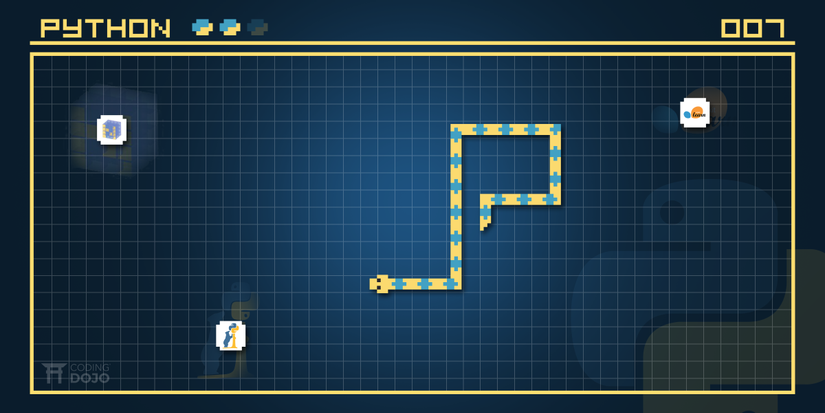Mastering Python
Bài đăng này đã không được cập nhật trong 7 năm
Python is a general-purpose interpreted, interactive, object-oriented and high-level programming language. Currently Python is the most popular Language in IT. Python adopted as a language of choice for almost all the domain in IT including Web Development, Cloud Computing (AWS, OpenStack, VMware, Google Cloud, etc.. ), Infrastructure Automations , Software Testing, Mobile Testing, Big Data and Hadoop, Data Science, etc. This course to set you on a journey in python by playing with data, creating your own application, and also testing the same. We call this course as Python for Everyone. myTectra offers Python Training in Bangalore,Chennai, Pune using Class Room. myTectra offers Live Online Python Training Globally.
 Chaper 1: An Introduction to Python
Chaper 1: An Introduction to Python
Chapter 2: Beginning Python Basics 2.1. The print statement 2.2. Comments 2.3. Python Data Structures & Data Types 2.4. String Operations in Python 2.5. Simple Input & Output 2.6. Simple Output Formatting Chapter 3: Python Program Flow 3.1. Indentation 3.2. The If statement and its' related statement 3.3. An example with if and it's related statement 3.4. The while loop 3.5. The for loop 3.6. The range statement 3.7. Break & Continue 3.8. Assert 3.9. Examples for looping Chapter 4: Functions & Modules 4.1. Create your own functions 4.2. Functions Parameters 4.3. Variable Arguments 4.4. Scope of a Function 4.5. Function Documentation/Docstrings 4.6. Lambda Functions & map 4.7. An Exercise with functions 4.8. Create a Module 4.9. Standard Modules Chapter 5: Exceptions 5.1. Errors 5.2. Exception Handling with try 5.3. Handling Multiple Exceptions 5.4. Writing your own Exceptions Chapter 6: File Handling 6.1. File Handling Modes 6.2. Reading Files 6.3. Writing & Appending to Files 6.4. Handling File Exceptions 6.5. The with statement Chapter 7: Classes In Python 7.1. New Style Classes 7.2. Creating Classes 7.3. Instance Methods 7.4. Inheritance 7.5.Polymorphism 7.6. Exception Classes & Custom Exceptions Chapter 8: Regular Expressions 8.1 Simple Character Matches 8.2 Special Characters 8.3 Character Classes 8.4 Quantifiers 8.5 The Dot Character 8.6 Greedy Matches 8.7 Grouping 8.8 Matching at Beginning or End 8.9Match Objects 8.10 Substituting 8.11 Splitting a String 8.12 Compiling Regular Expressions 8.13 Flags Chapter 9: Data Structures 9.1 List Comprehensions 9.2 Nested List Comprehensions 9.3 Dictionary Comprehensions 9.4 Functions 9.5 Default Parameters 9.6 Variable Arguments 9.7 Specialized Sorts 9.8 Iterators 9.9 Generators 9.10 The Functions any and all 9.11 The with Statement 9.12 Data Compression Chapter 10: Writing GUIs in Python 10.1 Introduction 10.2 Components and Events 10.3 An Example GUI 10.4 The root Component 10.5 Adding a Button 10.6 Entry Widgets 10.7 Text Widgets 10.8 Checkbuttons 10.9 Radiobuttons 10.10Listboxes 10.11 Frames 10.12 Menus 10.13 Binding Events to Widgets Chapter 11: Network Programming Introduction 11.1 A Daytime Server 11.2 Clients and Servers 11.3 The Client Program 11.4 The Server Program 11.5 Recap 11.6 An Evaluation Client and Server 11.7 The Server Portion 11.8 A Threaded Server Chapter 12 : Python MySQL Database Access Introduction 12.1 Installation 12.2 DB Connection 12.3 Creating DB Table 12.4 INSERT, READ,UPDATE, DELETE operations 12.5 COMMIT & ROLLBACK operation 12.6 Handling Errors
All rights reserved